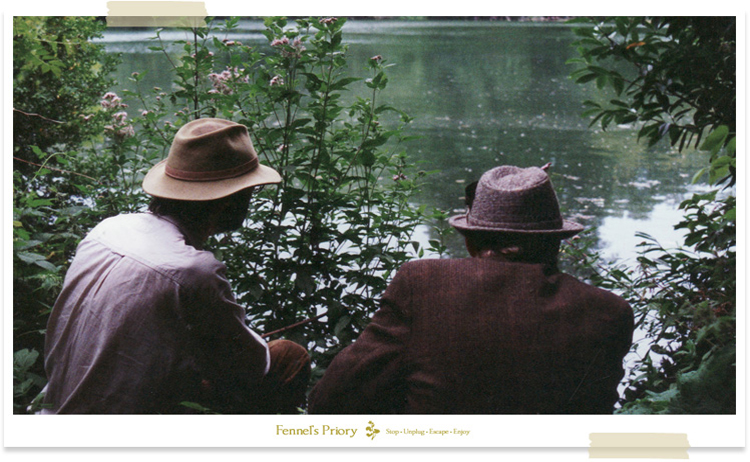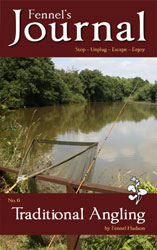
Faith in the Future
In the future, everybody will be 6ft 2in tall, wear ginger wigs and have small funnel-shaped ears. They’ll wear foam flip-flops and rustle about in silver jump suits. All the men will be called ‘Clive 284’ and all the women will be called ‘Prudence 81’. They shall travel in peanut-shaped hover pods while listening to monotone music that sounds worryingly like Morse code. They shall each have two office jobs, but not work in an office. Their computer screens will be laser-etched onto their eyeballs and their mobile phones shall be implanted into their eardrums at birth. Their faces will be without expression, except on Sundays when the sides of their mouths will twitch at the prospect of eating a green pill for dinner that tastes of ‘Spouts 296’. Everybody will be the same, and everyone will be normal. They will have forgotten the message of the Priory. They won’t know how to ‘Stop – Unplug – Escape – Enjoy’.
How can the future look so bleak when it’s ours to create? All it takes is for us to cringe at the thought of wearing foam flip-flops and eating sprout-flavoured energy pills. All it takes is for us to be different.
At a time when choice appears to be limited and an angler is expected to produce ‘results’ from his hours spent fishing, traditional angling is the thing that proudly bucks the trend and dares to be different. It has identity. It is not serious, or competitive, or technological. Traditional anglers are not called Clive 284. Thank God for that. Actually, don’t thank God. Thank someone much more down to earth.
Once upon a time there was a boy called Chris Yates. He grew up loving fishing and, at the age of 32, caught a fish so large that it broke a British Record; a record that had stood for twenty-eight years. He wrote about his journey and what happened afterwards, and in doing so inspired a generation of anglers to go in search of monster fish that live in secret lakes. He also inspired people to be different.
Chris Yates is the person most associated with traditional angling. His writing made anglers look at the world differently. He opened their eyes to new beauties and the nature around them. He championed an adventurous spirit, always taking the reader on a journey, one where he often shared his love of vintage fishing tackle. Because of the strength of Chris’ writing, old tackle soon became associated with old-fashioned ‘Waltonian’ angling values and a relaxed and good-humoured approach to angling.
I am one of the young people who identified with the adventure, magic, romance, and excitement in Chris’ words (and, I must say, in his photography too). Already a user of vintage tackle, I immediately related to what Chris was saying when he described the ‘feel’ of cane rods. More passionately, however, I shared his concerns about the "selfish, competitive and unbearably earnest” modern carp-angling scene and the "morose, Rambo tendency” of the tackle fashions which, with altogether too-efficient tactics, made carp angling "as exciting and demanding as playing snap with a tortoise”. It was exactly what I wanted to read and exactly what was needed to start a revolution. The Traditional Angling Movement was born.
Of course, Chris was only perpetuating the values already communicated by famous angling writers such as Bernard Venables, ‘BB’, H.T. Sheringham, Francis Francis and, of course, Izaak Walton. (Also the lesser-known but equally brilliant William Caine, Maurice Wiggin and W.H. Cannaway.) But Chris was writing in an age when the contrasts between traditional and modern were greater than ever before, which made his writing seem more powerful and gave it greater purpose. While modern angling was in danger of burying itself in a nuclear bunker, Chris made us realise that it is not only okay, but positively wonderful to look towards a different horizon where we can stop and smell the watermint and proudly talk about how angling makes us feel.
Seeking and seeing beauty in the watery world, and surrounding oneself with things of aesthetic and emotional value, doesn’t define traditional angling. Beauty, after all, is in the eye of the beholder. There’s no ‘right or wrong’ when we describe what is beautiful and what is not. Tackle choice and how we dress is down to individual taste. But Chris’ writing, whether intentionally or unintentionally, made us realise that there is a clear distinction between behaviour that is acceptable and unacceptable. When sporting ethics are ignored (such as ‘angling’ for fish that are about to spawn, just because that’s when they’re heaviest), one has to take a step back and choose sides. In these instances it’s necessary to be a man. Put a flower in the lapel of your (tweed) jacket and skip through water meadows with a smile on your face. Those who don’t understand your behaviour might accuse you of being eccentric, an ‘overly sentimental Nancy’ (as once described of me). But it doesn’t matter. That you feel and feel comfortable is enough. Who wants to act in a way that compromises one’s beliefs, anyway? Playing safe and hiding amongst the masses will rarely get you noticed (worse still, you might lose yourself in the fog of normality). Be batty, be traditional, and be proud. As Margaret Rutherford once said:
"I hope I’m an individual. I suppose being an eccentric is a super individual. Perhaps an eccentric is just off centre – ex-centric”.
Being individual and having the confidence to be different are two of the things that we can learn from Chris’ writing. But there is another message, subtler yet more powerful. If you read Chris’ first three books (Casting at the Sun, The Deepening Pool and The Secret Carp) you’d be forgiven for thinking that they’re about fishing. ‘Man goes in search of carp, catches a record, then discovers barbel, moves near to a river, has lots of adventures, then discovers a very special lake with uncaught monster carp, which begins the cycle all over again.’ For me, the idea that Chris is pursuing a fish is incidental. What’s important is that he’s following his dreams (or, as he describes it, "an image”). He believes in his dreams, and believes that if he keeps looking and believing that he will ultimately find them. Unswerving and unquestionable belief, excitement and encouragement, surety and resolve, good humour and eccentricity, care-free abandonment (well, that may be taking it too far) but most importantly belief in something so important as to pursue it whole-heartedly. An unquestionable belief in believing. There’s another word for this: faith.
At the first level, you could say that Chris’ writing restored our faith in angling. But really it restored our faith in ourselves, to stand up for our beliefs and be different. (How else did a thousand or more anglers decide to abandon their carbon rods and fish like Chris?) Does this make him a spiritual leader? Does it make Traditional Angling the new Rock ‘n’ Roll? It does not. The groupies mostly have beards and the only drugs served up are in teacups. And, besides, I don’t think Chris would want to wear the loincloth and sandals. Chris’ intention was never to convert, merely to open our eyes to things we might not otherwise have seen. And he did it very well.
Chris once wrote monthly features for the leading angling magazines; he starred in the hugely popular Passion for Angling series on BBC2, broadcast on BBC Radio 4 and went on to become founding editor of Waterlog magazine, a publication for traditional anglers. Chris’ activities were broadcast to millions. Many followed his lead; the water’s edge was soon waggling with cane rods and floppy hats. Then it went quiet. Why?
Maybe the traditional anglers were only savouring a temporary dalliance with nostalgia, perhaps they never quite understood what traditional angling was all about, or was it that they were afraid to stand out from the crowd when traditional angling was no longer fashionable? Was it that they’d lost their faith?
The marketer will say that traditional angling is now a niche market, and that only a few hundred people in the UK continue to use bamboo rods and vintage tackle. This saddens me (although, as I’ve said earlier, traditional angling isn’t really about the tackle). I am a friend of Chris and the person he once described as giving him 'faith in the future'.
Back in 1995 I cycled sixty miles to fish with Chris on opening night at Jade Lake. I didn’t think anything of it at the time. I just ‘borrowed’ my landlady’s bicycle, strapped all my tackle to it and set off for a new season of adventures. Chris wrote about it in Coarse Angling, where he said:
"Nigel, who is 21, is one of the generations of younger anglers who gives me faith in the future. Not only had his epic bike ride shown marvellous spirit – and a dubious sanity – he’d also kept faith with the old season by dropping out of another syndicate because they wanted to fish all year round”.
Chris introduced me to so many respected anglers, the ‘old guard’ of traditional angling, as it were. People like Bernard Venables, Peter Stone and Maurice Ingham became my friends. I felt (and still feel) part of the fabric of traditional angling. I couldn’t imagine angling in any other way. This makes me think that traditional angling has, for the time being, gone ‘underground’. It is still very much alive, but practised in those private places beloved of traditional anglers. I’m sure that it will well up again in the future, but for now it is a passion of the minority. A minority who believe in the traditions of angling, and have faith in the future.
 This is a sample chapter from Fennel's book Traditional Angling.
This is a sample chapter from Fennel's book Traditional Angling.
If you like it, please also subscribe to the Fennel on Friday weekly email. You'll receive either a blog, video or podcast sent to you in time for the weekend.



